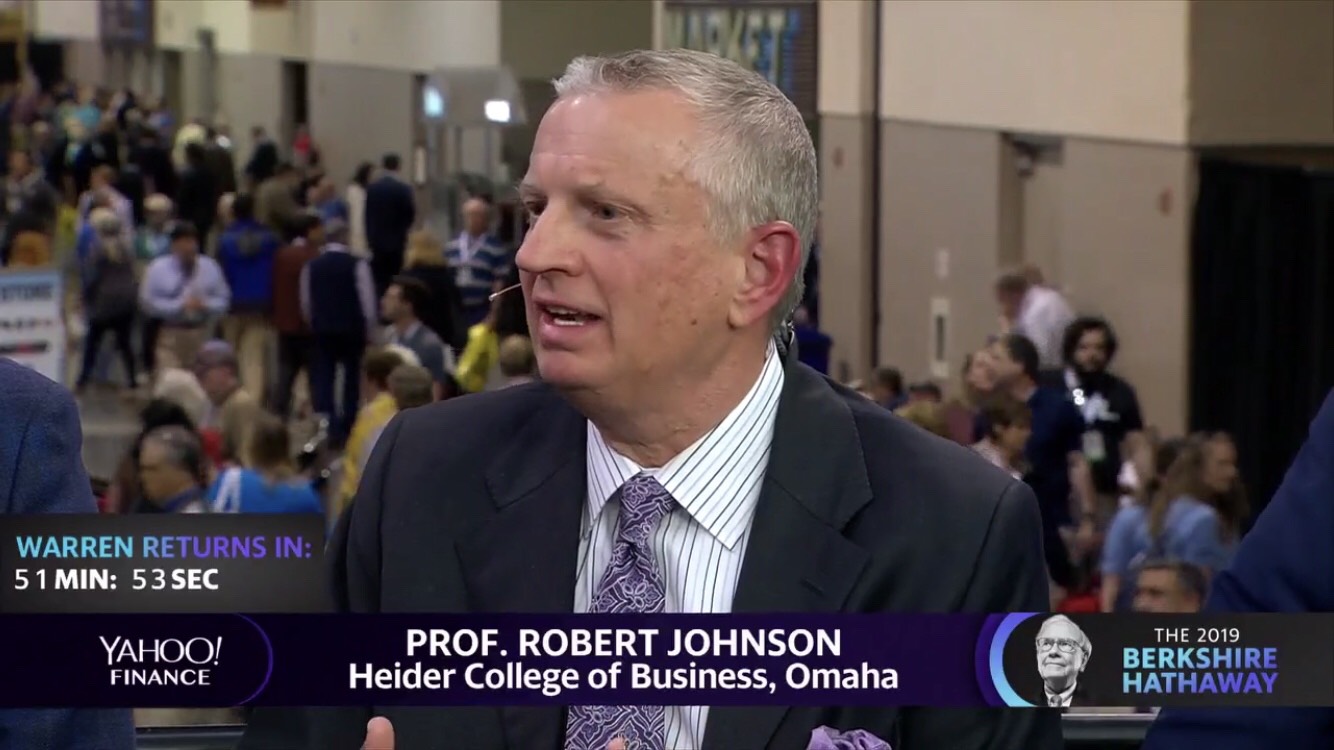Robert Johnson, PhD, CFA, CAIA | Source | Chairman and CEO at Economic Index Associates

Robert Johnson, PhD, CFA, CAIA
Robert R. Johnson, PhD, CFA, CAIA, is Professor of Finance, Heider College of Business, Creighton University. He is also co-founder and CEO of Economic Index Associates, a NYC-based firm that creates investable indices. He co-authored The Tools and Techniques Of Investment Planning, Strategic Value Investing and Investment Banking for Dummies, among others. He was formerly deputy CEO of CFA Institute in charge of the CFA Program and was President of the American College of Financial Services. A link to his bio on the Creighton University website is https://www.creighton.edu/faculty-directory-profile/2010/robert-johnson
-

Creighton University (https://business.creighton.edu/)
Professor of Finance; Chairman and CEO -
Heider College of Business, Creighton University
Professor of Finance -
Economic Index Associates (https://www.economicindexassociates.com/)
Chairman and CEO
started Dec 2018
-
Valuations, yields help stocks sustain lead over main street Reuters.com
As world stock markets end a turbulent six months near record highs, investors appear to be betting heavily that economies will recover quickly from the coronavirus crisis, fuelled by zero interest rates and abundant monetary and fiscal stimulus.
Article -
Will GameStop Activism Ruin Your Retirement? Forbes.com
“Short-sellers make the markets more complete,” says Robert R. Johnson, Professor of Finance, Heider College of Business at Creighton University in Omaha. “Short-selling allows investors who are bearish on a company’s prospects to take a position, providing more information and liquidity to the markets. Short-sellers often provide valuable ‘price discovery’ to the markets. If short-selling were not allowed, one might argue that market prices would be determined by the ‘crazy optimists.’ Short-selling allows pessimists to weigh in and impact market pricing.”
Article -
Trump vs. Biden: Experts Weigh How Much US Economy Will Factor On Voters' Minds In Presidential Election InternationalBusinessTimes.com
“One of the biggest problems with President Trump is that he consistently trumpets stock market gains and infers that they are a proxy for the economy,” Robert Johnson, professor of finance at Heider College of Business at Creighton University, said in response to a query from International Business Times. “The reason may be that the market gives an assessment of stock valuation daily while economic conditions are much more nuanced and difficult to gauge.”
Article
-
Investing Wisely: Avoiding the Pitfalls of Market Timing
Dr. Johnson warns that "herd behavior and market timing are wealth-destroying." Missing the top 10 best days in the stock market can cut returns by over 40%. He advises against fear-based investing, advocating for long-term strategies like dollar-cost averaging and maintaining an Investment Policy Statement. Experienced investors understand market volatility is normal, and investing is a marathon, not a sprint. -
Habits That Practically Guarantee Wealth: Insights from Finance Expert
Dr. Johnson emphasizes the importance of saving and investing, stating, "You cannot simply save your way to true wealth." He advises budgeting for savings, automating financial decisions, and developing an Investment Policy Statement. Consistency and patience, rather than get-rich-quick schemes, are key to long-term wealth accumulation. -
Retirement Expert Agrees: Don't Rely Solely on Social Security
Dr. Johnson agrees with Dave Ramsey, stressing the importance of not relying solely on Social Security. He warns, "Social Security's future is uncertain," and suggests planning for it as a "dessert" rather than the main course. He highlights the misconception that one can simply work longer if savings fall short, noting health issues often force early retirement.
-
It's often said that the chairman of the Federal Reserve is the second most powerful person in the world, nest to the President of the United States. Some would say that understates the chair’s power. For over 30 years I have been rigorously studying the association between Federal Reserve policy and capital market returns.





